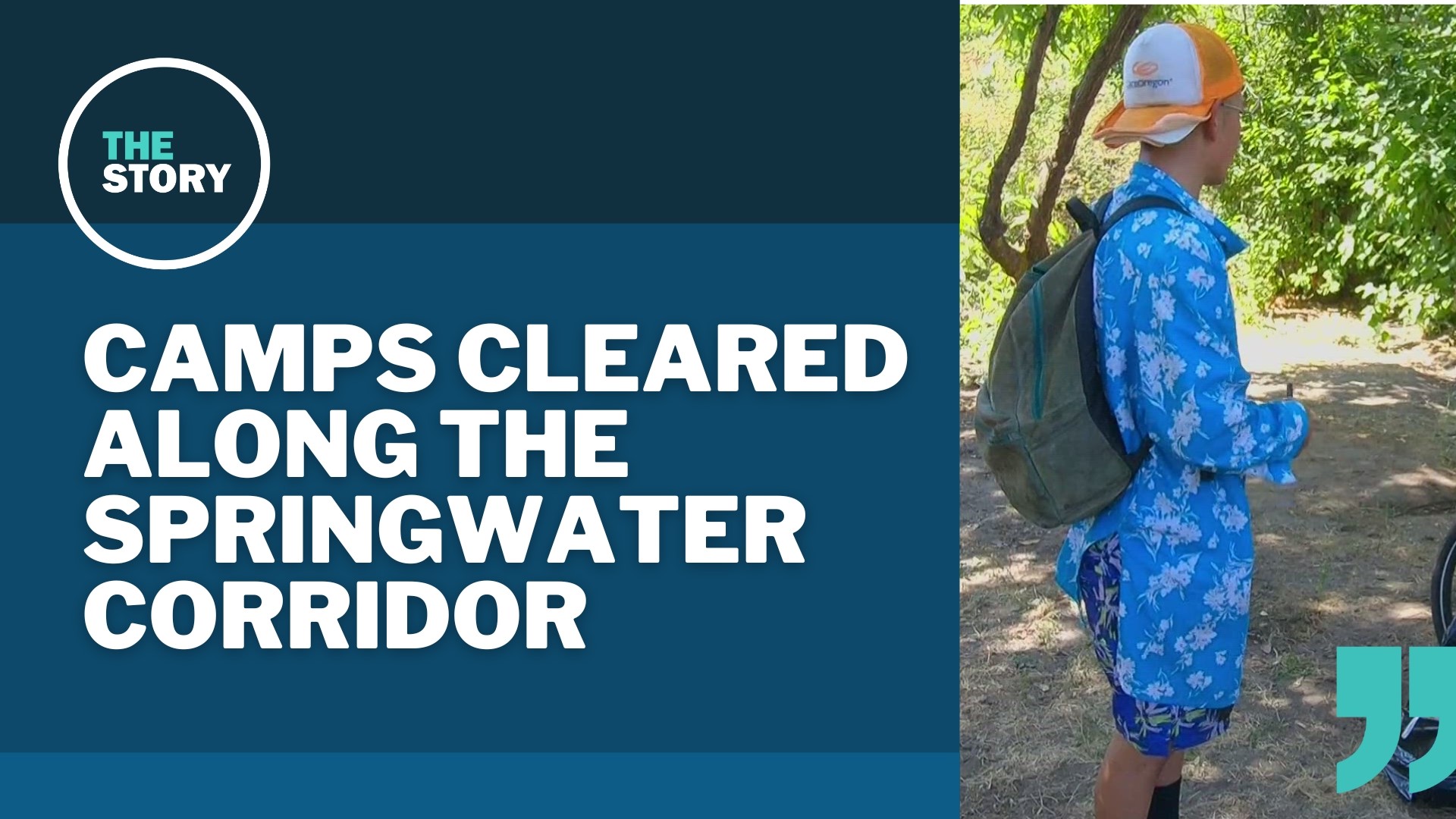PORTLAND, Ore. — Parts of the Springwater Corridor Trail in Southeast Portland look harmless, almost serene; during the day that is. Neighbors say that all changes at night.
"Last night they were shooting at my sister's house, and a week ago they shot at her house and she had to call the cops,” said one woman who’s lived by the public trail for 23 years.
She's talking about the homeless people who live in the woods along the trail. She asked to remain anonymous for fear of retaliation from the homeless people she believes already target her house.
This type of threatening and violence isn’t new. Homeless people have camped along the biking and walking trail for years. It's more than 20 miles long, surrounded by wildlife and wetlands and goes through Boring, Gresham and Portland.
“It's a fight or flight for the last 23 years,” said the woman. “I’m fighting these people off my fence, literally trying to climb over my fence, throwing needles at me, feces, dead animals, and now I’ve got to figure out who to call in government to come help,” she said.
The city of Portland tells KGW keeping the trail clear and safe is always a priority, but they can't force homeless people to leave.
Some neighbors argue since the city is focusing homeless efforts in downtown Portland, homeless people are moving out to more remote places like the Springwater Corridor.
On Tuesday, a KGW crew saw the City of Roses Disposal and Recycling (COR), one of two recycling and trash removal companies hired by the city to remove homeless camps and the garbage associated with them, picking up trash around camps on the trail.
In the last six months, the city has cleared 65 campsites along the trail. In the past two weeks, they've put 10 people, who were willing, into a Safe Rest Village. When a KGW crew was there, they watched a COR worker talk with a homeless woman for over an hour, trying to connect her with resources.
“Mostly the people that come here are homeless people that are trying to sell their drugs,” said Jonathan, who’s camped along the trail for five years. He’s had 10 encampments there and said to survive, one has to watch their back.
“People are getting beat up, women getting raped, killed, a lot of drugs,” he said.
It's almost impossible to find peace of mind whether living in a tent along the trail or in a house that overlooks it.
“I’m sick to my stomach. Totally sick to my stomach that the city’s allowed this to happen,” said the anonymous woman.
The city tells KGW in an email that “the trail and its surrounding natural areas are monitored and cleared regularly year-round, with extra special attention leading up to the Hood to Coast relay at the end of every August, which includes a course of the race along the public trail.”

